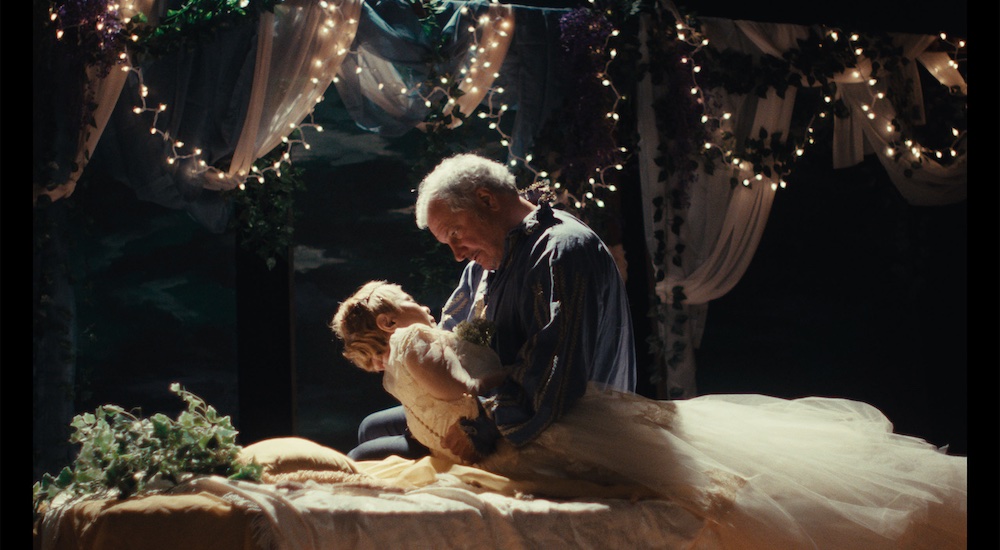“I’m old school,” says Dan Mueller (Keith Kupferer). The construction worker often returns to that refrain in Ghostlight, particularly when faced with intense emotions from a recent family tragedy. Directed by Kelly O’Sullivan and Alex Thompson, Ghostlight is a tender story of a family trying to reconnect through a community theater production of the iconic tragedy, Romeo and Juliet. While suspension of disbelief is often needed for plot details, the story and acting are touching enough to make up for it.
Details are light when we first meet Dan Mueller, a middle-aged construction worker who seems out of sorts. We quickly meet his wife, Sharon (Tara Malden), and high-school-aged daughter Daisy (Katherine Mallet Kupferer). Daisy is acting out at school and is suspended on the condition she attends therapy. All of them are dealing with the fallout of a family tragedy, one the film slowly reveals, letting the truth emerge as the family’s cracks become more evident. It gives the film a great pace and leaves just enough mystery to keep audiences engaged.
“Old school” Dan ends up having his own temper problems and through coincidence and happenstance finds himself involved in a community theater production of Romeo and Juliet. What begins as a tentative foray into escaping his life turns into Dan’s genuine enjoyment of the theater exercises and games, allowing him the freedom to process some of these intense emotions he’s been having. It also allows him to bond with his theater-obsessed daughter, who eventually joins the play herself.
The strongest element of Ghostlight is the family at its core. This family’s tragedy, their son committing suicide, has so deeply hurt them that former frictions are amplified and new cracks have formed. Their son’s situation has eerie parallels to Romeo and Juliet, which forces all three of them, either reciting dialogue or watching from the audience, to face their grief, shame, guilt, and pain head-on. The final act is incredibly moving to watch these three individuals open up and reconnect with each other. Ghostlight has a bit of a cheat code to create excellent family chemistry because the three actors are actually mother/father/daughter in real life. It’s a risky casting decision but a beautiful shortcut for emotional impact.
Where Ghostlight struggles is its plot holes. Since details are doled out so carefully, sometimes it means that earlier family reactions don’t make sense later. For instance, Dan supposedly doesn’t know the plot of Romeo and Juliet and Daisy is happy to quote the prologue verbatim and show him the “really old” 1996 film Romeo + Juliet. Yet in all of her excitement, she doesn’t immediately identify how similar the story is to her brother’s suicide. Both elements, her love of the play and his lack of knowledge, feel hard to believe and take the viewer out of the story. As it is, the catalyst of the story is that one of the community theater actors approaches Dan on the street after watching him lose his temper. It’s a very heavy-handed construct in an otherwise emotionally grounded story.
For all of its plot holes, Ghostlight is still a heartwarming film. The actors, channeling their personal family bonds, create incredibly real and complicated characters who must find a way to process their grief. In addition to its tender moments, the film has excellent pacing and reveals the full picture of what happened to their son slowly enough to keep viewers watching. It’s not a perfect film, but it’s a touching tribute to the power of processing our emotions, no matter what form that may take.

